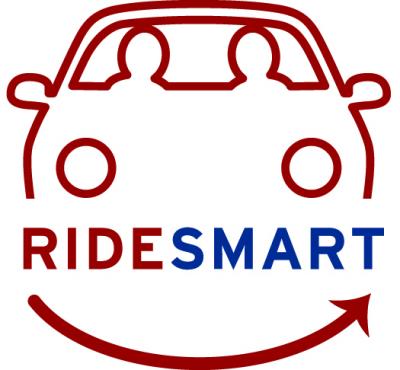Emergency Ride Home
Emergency Ride Home Fillable Form
Emergency Ride Home (ERH) flyer
The Emergency Ride Home Program or ERH provides part- or full-time employees of ERH-registered businesses who either ride SMART services, vanpool, carpool, bike or walk to work with four (4) free emergency rides home a year in the event of an unexpected emergency or unscheduled overtime. A SMART supervisor will provide the emergency ride home or schedule a ride for the commuter through a taxi or ridesourcing company. Rides are available 6 am - 730 pm.
Registering is easy, and the ride is free!
For the Employer:
Businesses can register for the ERH program to give their employees access to the program by satisfying three (3) out of the eight (8) requirements below. Employers must register online or through a SMART staff member by phone or e-mail. Renewal/Updates need to be completed every two years to keep our information up to date.
- SMART assists in the employers ECO Survey required by DEQ
- Employer offers a transit pass subsidy or pre tax benefits to their employees
- Business has an established vanpool for employees or promotes vanpool to workforce
- Business participates/promotes in the Get There Challenge or other SMART Challenges.
- Employees log trips on ‘GetThere Oregon.’ website. A minimum of 2 trips per week for participating employees.
- Encourage Walk Smart Program – sharing advertisement and email materials
- Business provides adequate bike storage at their work site
For the Employee
In addition to an eligible trip and registered employer, participants must have a qualifying emergency. The personal emergency must arise while at work and require the person to go home or to where the emergency requires their presence.
SMART’s ERH program defines an ‘emergency’ as any of the following:
- SMART’s ERH program defines an ‘emergency’ as any of the following:
- Illness of the commuter or a member of their immediate family
- Unscheduled overtime or extended work hours
- A carpool/vanpool driver's inability to make the scheduled trip home due to an unexpected work schedule or illness
- A personal crisis occurs (i.e. death in the family, extensive property damage or loss due to natural disaster, theft, etc.)
Upon requesting an ERH, the participant must provide the follow information:
- Name
- Phone number
- Their origin and needed destination
- A work supervisor’s phone number
- Mode of transportation taken to get to work
- Emergency that warrants a ride – (such as a family emergency)





